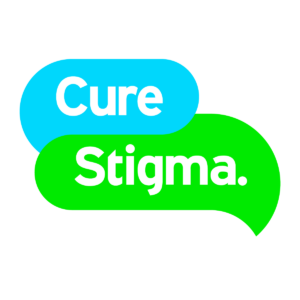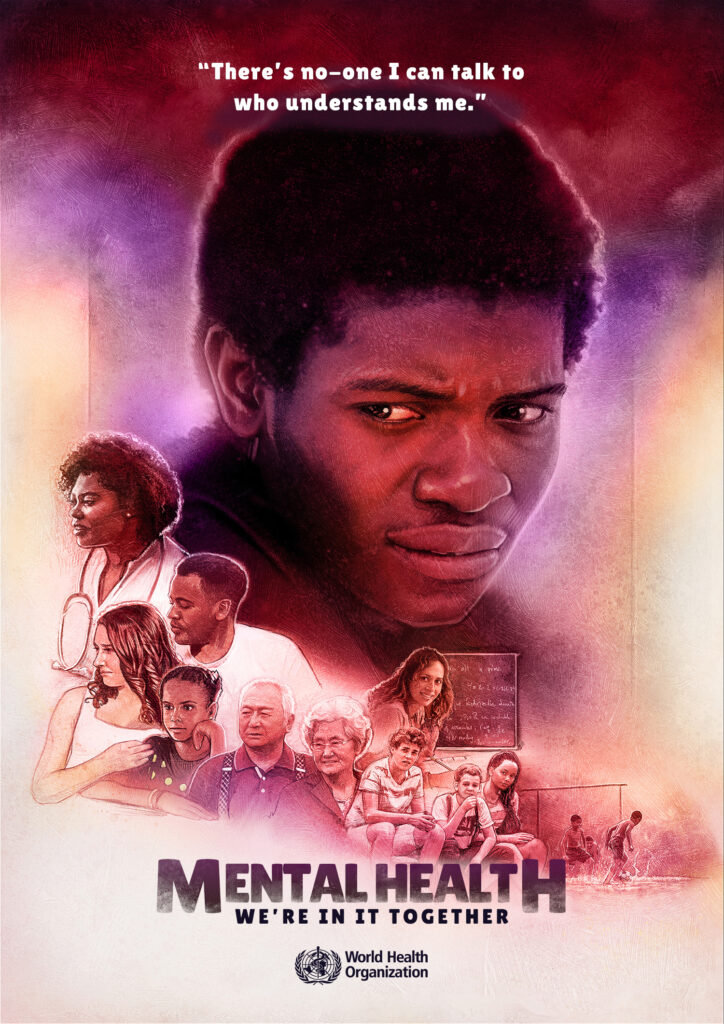While May is Mental Health Awareness Month, October 7–13 is Mental Illness Awareness Week or MIAW 2018. Naturally, there is some overlap between these two essential observances—namely—ending the stigma of psychological disorders like addiction and depression.
We cover stigma on this blog frequently due to our understanding that there exist forces preventing Americans from seeking treatment. More people need to see the person, not the illness. Nearly 60% of adults with a mental illness didn’t receive mental health services in the previous year. Given that individuals living with untreated mental health conditions are at significant risk of self-harm and suicide, collective action is needed immediately.
The National Alliance On Mental Illness or NAMI chose Cure Stigma as its theme this year for Mental Health Month and MIAW 2018. The organization would like it to be known that: together we can encourage more people to seek treatment. NAMI’s campaign manifesto reads as follows:
There’s a virus spreading across America. It harms the 1 in 5 Americans affected by mental health conditions. It shames them into silence. It prevents them from seeking help. And in some cases, it takes lives. What virus are we talking about? It’s stigma. Stigma against people with mental health conditions. But there’s good news. Stigma is 100% curable. Compassion, empathy and understanding are the antidote. Your voice can spread the cure. Join NAMI, the National Alliance on Mental Illness. Together we can #CureStigma.
Mental Health Facts
Most Americans are more than likely unaware of just how pervasive mental illness is around the world. The World Health Organization (WHO) estimates that over 300 million people are living with depression. What’s more, the vast majority of the afflicted have never undergone therapy, counseling, or treatment.
The truth is that too many people have little understanding of mental disease; lack of knowledge – ignorance – is a contributing factor in persons lacking empathy and compassion. If a more significant number of Americans could appreciate that mental illness affects 1 in 5 adults in the United States, maybe they’d exhibit greater understanding. With that in mind, let’s take a look some of the more recent figures to bring depression, bipolar disorder, and addiction in to focus.
Here are the facts:
- 60 million people in the United States are living with a mental illness.
- Among the 20.2 million adults in America who experienced a substance use disorder, 50.5%—10.2 million adults—had a co-occurring mental illness.
- Depression is the leading cause of disability worldwide.
- Approximately 1 in 25 adults in the U.S. experiences a severe mental illness in a given year.
- 90% of those who die by suicide have an underlying mental illness.
Armed with such information, anyone can see that we have a real crisis on our hands when it comes to mental disease. This week provides an opportunity to take to social media and spread the message that stigma hurts us all; that empathy and compassion save lives; and, that together we can affect real change.
Fighting Stigma On World Mental Health Day
Today is World Mental Health Day, October 10, 2018! The focus this year is Young People and Mental Health In A Changing World.
The World Health Organization writes:
Investment by governments and the involvement of the social, health and education sectors in comprehensive, integrated, evidence-based programmes for the mental health of young people is essential. This investment should be linked to programmes to raise awareness among adolescents and young adults of ways to look after their mental health and to help peers, parents and teachers know how to support their friends, children and students. This is the focus for this year’s World Mental Health Day.
In recognition of MIAW and World Mental Health Day, we hope that more people will open their hearts to friends and family members affected by mental illness. Mental health disorders are not going anywhere, but we can make stigma disappear. As a result, millions of people will find the courage to seek help and go on to lead fulfilling and productive lives.
Co-Occurring Disorder Treatment
We mentioned above that more than ten million Americans are living with addiction and a co-occurring mental health disorder. It is paramount that such individuals receive treatment for their use disorder and dual diagnosis concurrently for successful outcomes. If you are a young adult male whose life is unmanageable due to mental illness, please contact PACE Recovery Center to learn more about our program. Parents of young men are also welcome to reach out to our team to learn how we can help your child break the cycle of addiction and heal from mental illness.
During World Mental Health Day and Mental Illness Awareness Week, PACE is spreading the message that the stigma virus is 100% curable; and, the antidote is compassion, empathy, and understanding.



